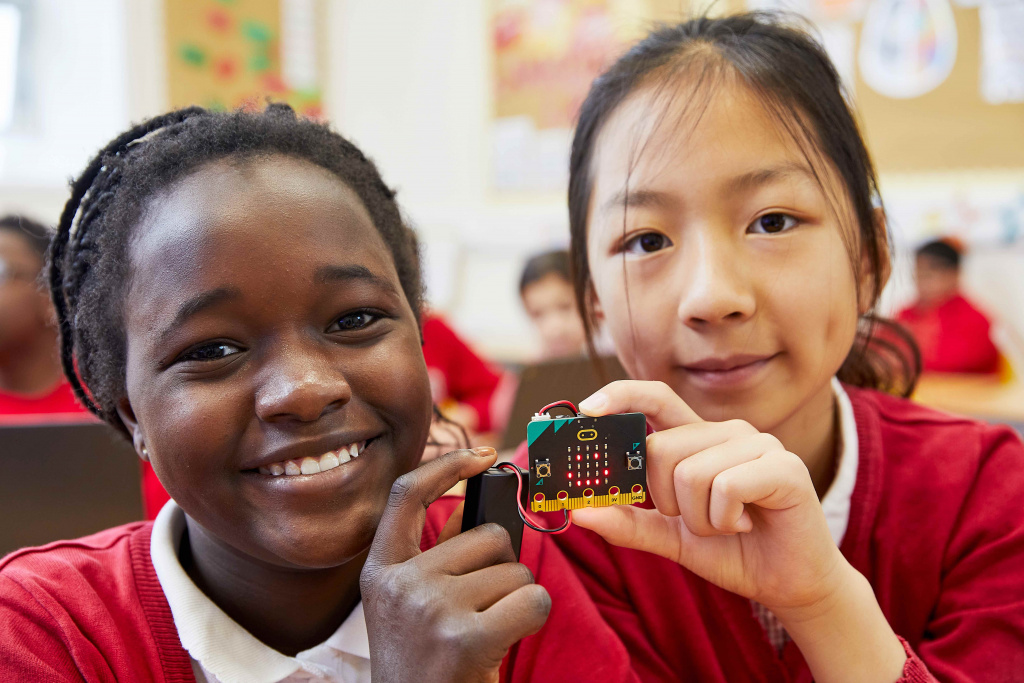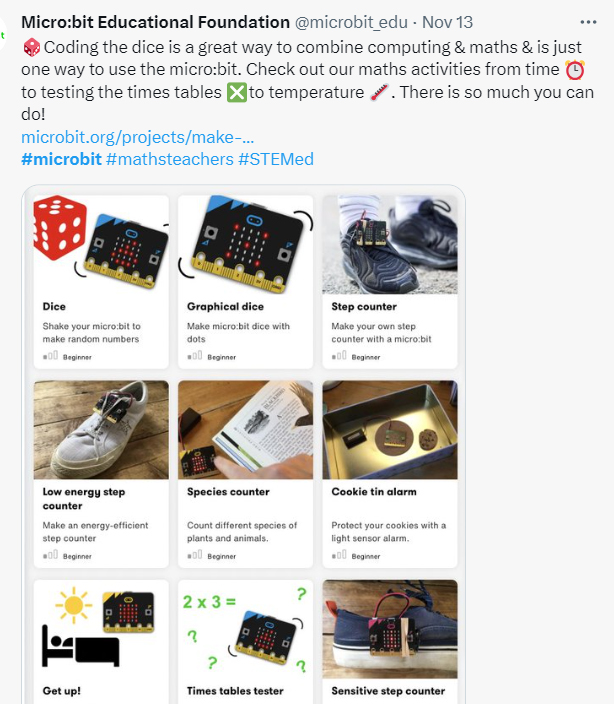
BBC micro:bits are pocket-sized computers that allow children to get hands-on with coding and digital making. The Micro:bit Educational Foundation was set up in 2016 as a non-profit organisation and continues to develop and extend the reach of the micro:bit and accompanying resources worldwide. Over six million devices are now in use across the globe and it is estimated that 42 million young people from more than 60 countries have already benefited from learning with the micro:bit.
'BBC micro:bit – the next gen' is an ambitious UK-wide project to inspire primary school children and raise the profile of technology and digital skills. It is run by BBC Education, Micro:bit Educational Foundation and Nominet, the guardians of the .uk domain. The scheme is set to distribute a total of almost 700,000 devices, plus brand-new teaching resources, to every primary school across the UK. All they have to do is apply.

To make sure this will not be a ‘computers in cupboards’ scheme, BBC Teach and the Micro:bit Educational Foundation have put together a set of resources to get schools started. These cover computational thinking, programming, digital creativity and machine learning. They include fun activities such as creating a name badge and step counter as well as recreating a game of rock, paper, scissors.
Paul Fletcher, CEO of Nominet, said: ‘As a public benefit company committed to using tech for good, we’re incredibly proud of this initiative. This programme can improve young lives through new opportunities and could inspire millions to embrace their digital futures. This new scheme could have a far-reaching impact that lasts for decades, just like the original BBC Computers for Schools initiative back in the 1980s.’
UK Skills Shortage